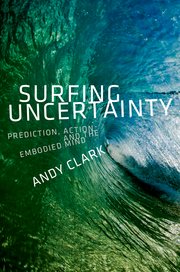Subscribe to Gorilla Grants
We regularly run grants to help researchers and lecturers get their projects off the ground. Sign up to get notified when new grants become available
Spotlight on...
I am working on the cognitive and neural mechanisms that enable people to revise their beliefs/decisions when presented with new evidence. More specifically, I am interested in situations where people seem unwilling to revise their beliefs, as exemplified by people with radical political or religious beliefs.
“We hypothesized that radical beliefs might be associated with a domain-general deficit in recognizing and revising our own mistakes.”
We investigated the cognitive underpinnings of radical (political) beliefs. Specifically, we hypothesized that radical beliefs might be associated with a domain-general deficit in recognizing and revising our own mistakes. This would indicate a problem with metacognition, rather than “first-order” task performance.
We used Gorilla to implement this study, as our research question required large cohorts of participants, coming from a diverse demographic background and having a wide range of political opinions. The Gorilla Code Editor was most helpful in allowing us to implement and host bespoke behavioural tasks online, without managing our own server.
We used perceptual tasks to measure the insight people have about the correctness of their decisions. In our tasks participants had to judge which of two patches contained more flickering dots, before rating their confidence in this decision. Here, a strong correspondence between confidence ratings and actual accuracy (i.e. high confidence when correct and low confidence when incorrect) indicates good metacognitive ability.
We combined these measures of metacognition with questionnaire measures about politics and especially radical beliefs, e.g. the intolerance people hold against opposing political opinions.
As predicted, we found that individuals holding radical beliefs displayed a specific impairment in metacognitive abilities about low-level perceptual discrimination judgments. Specifically, more radical participants displayed less insight into the correctness of their choices, and reduced updating of their confidence when presented with additional evidence (i.e. seeing the patches with dots again before rating their confidence). Our findings point to a generic resistance to recognize and revise incorrect beliefs as a potential driver of radicalization.
We include catch questions in questionnaires (e.g. “If you have read the question please answer with: Agree completely”) to screen out people that answer randomly. We also set a criterion for behavioural task performance to make sure that people were paying attention to the task.
More generally, we incentivized people by paying them bonus money according to their task performance. I suspect that incentivization is the most crucial factor to ensure engagement.
In our recent study, we show that people with radical political beliefs show reduced insight into the correctness of their decisions. This effect is present on both extremes of the political spectrum. When I present those results, people often equate “radical” with “far right” (and ignore the far left) which is not what we find. There might be some selective listening going on when people interpret our findings!
In my eyes, understanding societal polarization is a crucial goal and therefore I believe my research has direct relevance for an important issue of our time. Understanding the cognitive underpinnings of radical beliefs will hopefully help us to counteract the process of radicalization in the future.
“Online research might be a game changer in solving the replication crisis.”
The study has been published in Current Biology.
Online research will have a huge impact on the field of psychology and cognitive neuroscience. In particular, online research might be a game changer in solving the replication crisis. For instance, since it is relatively easy, fast and inexpensive to acquire online data, we have started to run internal replication samples for all effects we find in our online studies. This helps to establish the robustness of our effects. Such an approach could move the field towards more reproducible findings.
The possibility to acquire large data within a short time. The samples also tend to be more representative and diverse than the samples we have usually in the lab.
For piloting, it is great that the task builder provides an interface with which it is possible to create and test an experiment within a few hours/days. The ability to conduct complex behavioural experiments online makes it possible to acquire large data sets in very little time.
The task builder is very helpful for designing quick and easy behavioural experiments.
I think it would be great to have more integration between the task builder and the coding interface. I might not be up to date on this, but my experience is that using the task builder is fast and easy but understandably restricted in scope, whereas coding a task from scratch takes a lot of time, but is very flexible. If it would be possible to combine the best out of both worlds – for instance allowing edits to code created in the task builder – that would be extremely helpful!
Response from Gorilla:
Hi Max,
We completely agree! It’s already possible to supplement the task builder with script. But, we want to make this even better. We’re making some underlying architecture changes to the task builder at the moment to make this possible.
Next year (2019), we expect there will be more options for users to add functionality to the task builder. In particular, your two requests: (1) on the fly adaptive trial generation and (2) stimuli (visual and auditory) generated in script.
I am a sports enthusiast, especially enjoying outdoor sports like climbing and hiking.
Surfing Uncertainty by Andy Clark

We regularly run grants to help researchers and lecturers get their projects off the ground. Sign up to get notified when new grants become available